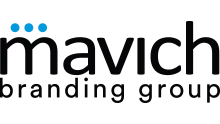Agents
Agent or Advisor Registration
Agent or Advisor Renewal
Financial Advisor Registration
The Athletics Department has adopted the following regulations and standards at Texas Christian University (TCU) in compliance with the Texas Secretary of State Athlete Agents Act and the National Collegiate Athletic Association (NCAA) agent bylaws.
STATE AND FEDERAL LAW
The Athlete Agents Act shall be implemented and administered by the Office of Athletics Compliance. Additional information on state and federal acts can be found at the following links:
Texas Secretary of State Office
NCAA Agents and Amateurism (UAAA and SPARTA)
AGENT ELIGIBILITY STANDARDS
Football - To be eligible to participate in an interview program for Football at TCU, an agent:
1. Shall be registered as an athlete agent pursuant to the State of Texas Athlete Agents Act;
2. Shall be certified as an agent by the National Football League Players Association (NFLPA);
3. Shall be registered with TCU; and
4. Shall comply with all supplemental oral and/or written instructions from athletics department personnel.
Men's Basketball - To be eligible to participate in an interview program for Men's Basketball at TCU, an agent:
1. Shall be registered as an athlete agent pursuant to the State of Texas Athlete Agents Act;
2. Shall be certified by the NCAA agent certification program*;
3. Shall be registered with TCU; and
4. Shall comply with all supplemental oral and/or written instruction from athletic department personnel.
Women's Basketball - To be eligible to participate in an interview program for Women's Basketball at TCU, an agent:
1. Shall be registered as an athlete agent pursuant to the State of Texas Athlete Agents Act;
2. Shall be certified by the Women's National Basketball Association (WNBA) or American Basketball League (ABL);
3. Shall be registered with TCU; and
4. Shall comply with all supplemental oral and/or written instruction from athletic department personnel.
Other Sports: To be eligible to participate in an interview program for sports other than football and basketball at TCU, an agent:
1. Shall be registered as an athlete agent pursuant to the State of Texas Athlete Agents Act;
2. Shall be registered with TCU; and
3. Shall comply with all supplemental and/or written instruction from athletic department personnel.
An agent who commits a violation of any of the above standards shall not be eligible to participate in future interview programs.
INTERVIEWS
Interview Standards
The following shall be standards set for the interview process between athlete agents and athletes at Texas Christian University, an institution of higher learning, hereafter referred to as TCU. Definitions of athlete and athlete agent are consistent with those outlined in the State of Texas Athlete Agents Act. The provisions set forth in this document shall address the guidelines for contact with athletes in the sports of football, men's basketball, women's basketball and all other sports.
All correspondence regarding agent registration shall be directed to the TCU Athletics Compliance Office: TCU Athletics Department, Athletics Compliance Office, TCU Box 297620, Fort Worth, TX 76129. For any inquires you may email agentday@tcu.edu or call (817) 257-7525. You may fax material to (817) 257-7787. Correspondence or inquiries directed toward any other party not specifically identified in this document may constitute a breach of protocol and result in:
1. No responsibility by TCU to respond to said inquiry
2. Notification to athlete agent of violations of standards of contract
3. Possible exclusion of athlete agent from interview process
The coordinator for agent interviews is Jessica Hazard, Assistant Athletics Director for Student-Athlete Development.
Note: Student-Athletes may not be contacted outside these designated interview periods until such student-athletes’ collegiate eligibility has expired.
Interview Process
The interview process shall be conducted on TCU's designated agent day(s), to be held on a date(s) to be determined in the summer. At no time shall an interview be conducted when it causes the athlete to miss:
1. Class or related academic requirements
2. Study hall or review sessions
3. Other mandatory meetings designated prior to interview week
Please note that every effort will be made to make athletes available for scheduled interviews.
All interviews shall be conducted within the confines of athletics department facilities as designated by the Office of Athletics Compliance. Areas will be cleared of distraction and made suitable for a professional and productive interview. Other areas may be designated by the coordinator if it is in the best interest of all parties involved. At no time shall an interview be conducted off campus.
In order to schedule an interview, the athlete agent must contact the interview coordinator no later than two weeks prior to the designated interview period. Be advised interviews will be at the discretion of the athlete and failure to accept or show for an interview will in no way constitute a failure to comply with the Athlete Agents Act on the part of TCU. The athlete agent should have the names of the athletes he wishes to meet with and the time he would prefer to meet with selected athletes. The Office of Athletics Compliance will verify the time and place of the interview with the athlete and convey the same information to the athlete agent by phone or mail.
Agents may meet with all student-athletes at one time or individually. Interviews shall be limited to 45 minutes with individuals and one hour with groups. Athletes may fill out questionnaires during the interview, but will be instructed not to give out any phone numbers or addresses. All mail should be directed to the athlete in care of the Office of Athletics Compliance. Athlete agents shall make no phone calls to athletes until completion of the final game of an athlete’s senior year, including bowl games.
Violations of the athlete agent policy shall result in penalties as outlined in the Athlete Agents Act, as well as exclusion from future interviews.
AGENT INFORMATION
General Principle
NCAA Bylaw 12.01.2 indicates that member institution's athletics programs are designed to be an integral part of the educational program and the student-athlete is considered an integral part of the student body, thus the importance of maintaining a clear line of demarcation between college athletics and professional sports. In this regard, an amateur student-athlete is one who engages in a particular sport for the educational, physical, mental and social benefits derived there from, and for whom participation in that sport is an avocation. Accordingly, the following legislation and the interpretations relating to amateurism have been developed.
General Rule
(Bylaw 12.3.1) An individual shall be ineligible for participation in an intercollegiate sport if he or she ever has agreed (orally or in writing) to be represented by an agent for the purpose of marketing his or her athletics ability or reputation in that sport. Further, an agency contract not specifically limited in writing to a sport or particular sports shall be deemed applicable to all sports, and the individual shall be ineligible to participate in any sport.
1. Student-athlete signing an agreement with an attorney: A student-athlete is not permitted to sign an agreement with an attorney to represent the student-athlete in screening inquiries and analyzing offers from agents, inasmuch as the specific request is contrary to Bylaw 12.3.2 (representation by an agent). [Staff Interp. 01/27/89]
2. The relationship between student-athlete and lawyer who contacted professional football teams on the student-athletes behalf. The staff agreed that an agency relationship existed between a student-athlete and a lawyer, contrary to the provisions of Bylaw 12.3.2 in a situation in which the student-athlete received a "tryout" with one professional team as a result of the lawyers efforts, and the student-athlete and the lawyer communicated with each other over a five-minute period regarding the reaction of the professional teams. [Staff Interp. 08/14/87]
Representation for Future Negotiations
(Bylaw 12.3.1.3) An individual shall be ineligible per Bylaw 12.3.1 if he or she enters into a verbal or written agreement with an agent for representation in future professional sports negotiations that are to take place after the individual has completed his or her eligibility in that sport.
Benefits from Prospective Agents
(Bylaw 12.3.1.4) An individual shall be ineligible per Bylaw 12.3.1 if he or she (or his or her family members or friends) accepts transportation or other benefits from any person who represents any individual in the marketing of his or her athletics ability. The receipt of such expenses constitutes compensation based on athletics skill and is an extra benefit not available to the student body in general. Or if he or she accepts benefits from an agent, even if the agent has indicated that he or she has no interest in representing the student-athlete in the marketing of his or her athletics ability or reputation and does not represent individuals in the student-athlete’s sport.
1. Receipt of money from an agent: A student-athlete who receives money (or other benefits) from an agent who is representing the student-athlete only in a particular sport would remain eligible to participate in a second sport at the member institution. Under such circumstances, the student-athlete's financial aid would be required to be gradated in an amount equal to the loan or the value of the benefits. [Official Interp. 04/26/91]
2. Agent charging a fee to a student-athlete on deferred payment schedule: A student-athlete jeopardizes his or her eligibility if an agent provides advice to the student-athlete about a professional contract with the understanding that the student athlete will pay the agent for such services once the student-athlete has been drafted by the professional sports organization, regardless of the fact that the agent provides the service only to student-athletes and has the same fee arrangement for all client. [Staff Interp. 12/16/92]
Legal Counsel
(Bylaw 12.3.2) Securing advice form a lawyer concerning a proposed professional sports contract shall not be considered contracting for representation by an agent under this rule, unless the lawyer also represents the student-athlete in negotiations for such a contract.
1. Advice from individuals other than attorneys: This legislation (bylaw 12.3.2) was not intended to restrict individuals other than lawyers (e.g., financial consultants, family friends) from giving advice regarding professional contracts. Advice may be secured from an individual under these circumstances concerning a proposed contract, provided the individual in turn does not represent the student-athlete in negotiations for such a contract. [Official Interp. 07/09/87]
2. Attorneys and professional contracts: The background and original purpose of Bylaw 12.3.2 that permits a student-athlete to secure advice from a lawyer concerning a professional sports contract:
In 1974, NCAA members recognized that student-athletes might need legal advice to assist them in understanding and evaluating professional sports contract offers made to them while they had eligibility remaining. Accordingly, member institutions adopted the current clause of Bylaw 12.3.2 that permits a student-athlete to seek advice from a lawyer, provided the lawyer does not represent the student-athlete in negotiations for a professional sports contract.
It was noted on the NCAA convention floor during consideration of the proposal that a student-athlete may seek the advice of a lawyer relative to future negotiations or discussions of the individual's professional aspirations, so long as the lawyer does not become actively involved in negotiations with the professional team or organization. The legislation was intended to provide an opportunity for a student-athlete to receive advice so that he or she could understand a contract offer, but it was not intended to involve the lawyer in direct contact with a professional organization.
Since the adoption of this legislation, more and more agent-attorneys have used the language to become involved actively in actual contract discussions with professional sports organizations to communicate all contract offers to a particular student-athlete through them while at the same time insisting that they are not representing the student in contract negotiations.
The legislation does not deny an individual the opportunity to seek competent legal counsel to review the terms of a proposed professional contract and to assist the individual in understanding those terms, nor does it deny an individual the opportunity to be represented by legal counsel if he or she chooses to negotiate a professional contract and forgo his or her remaining eligibility. It does indicate that once a student-athlete decides to have legal counsel and contact the professional club concerning the contract offer, the individual has agreed to be represented by an agent in the marketing of his or her athletic talent, and no longer is eligible per Bylaw 12.3.2 [Ed. Col. 05/09/84]
3. Advice from a lawyer or agent concerning a proposed professional contract: A lawyer or agent may provide advice to an individual regarding the merits of a proposed contract without jeopardizing the individual's amateur status, provided he or she has no contact and does not market the individual's athletic ability or reputation in a particular sport. [Staff Interp. 06/30/89]
Presence of a Lawyer at Negotiations
(Bylaw 12.3.2.1) A lawyer may not be present during discussions of a contract offer with a professional organization or have any direct contact (i.e., in person, by telephone, or by mail) with a professional sports organization on behalf of the student-athlete. A lawyer's presence during such discussions is considered representation by an agent.
For example: If an individual was drafted by a major league baseball team and offered a contract, his advisor would not be permitted to negotiate with a professional team. In this regard, however, the attorney could provide advice to the individual in private regarding the merits of the contract. If the individual, in turn, elected not to accept the terms of the contract, he could negotiate the terms of the contract with the professional team by himself or with the assistance of his parents or the institution's professional sports counseling panel.
AMATEUR STATUS AND NEGOTIATIONS
Amateur Status
(Bylaw 12.1.2) An individual loses amateur status and thus shall not be eligible for intercollegiate competition in a particular sport if the individual:
A. Uses his or her athletic skill (directly or indirectly) for pay in any form in that sport;
B. Accepts a promise of pay even if such pay is to be received following completion of intercollegiate athletics participation;
C. Signs a contract or commitment of any kind to play professional athletics, regardless of its legal enforceability or any consideration received;
D. Receives, directly or indirectly, a salary, reimbursement of expenses or any other form of financial assistance from a professional sports organization based on athletics skill or participation, except as permitted by NCAA rules and regulations;
E. Competes on any professional athletics team, even if no pay or remuneration for expenses was received, except as permitted;
F. After initial full-time collegiate enrollment, enters into a professional draft; or
G. Enters into an agreement with an agent.
1. Legal enforceability of a contract: A student-athlete in the sport of football at an institution was declared ineligible per bylaw 12.3.1, inasmuch as he signed an agreement with a Canadian agent to play Canadian professional football, even though the institution argued that the agent intentionally misrepresented the matter, thus making the agreement void. Members of the council noted that the student-athlete clearly had signed the agreement and the fact that he may have been misled by the agent would be a mitigating factor to be considered by the NCAA Council Subcommittee on Eligibility Appeals in determining whether to restore eligibility. [Official Interp. 10/15/80]
Negotiations
(Bylaw 12.2.4.3) An individual may request information about professional market value without affecting his or her amateur status. Further, the individual, his or her family members or the institution’s professional sports counseling panel may enter into negotiations with a professional sports organization without the loss of the individual’s amateur status. An individual who retains an agent shall lose amateur status.
PROFESSIONAL DRAFT AND TRYOUTS
Inquiry
(Bylaw 12.2.4.1) An individual may inquire about eligibility for a professional-league player draft without affecting his or her amateur status.
Draft List
(Bylaw 12.2.4.2) An individual loses amateur status in a particular sport when the individual asks to be placed on the draft list or supplemental draft list of a professional league in that sport, even though:
A. The individual asks that his or her name be withdrawn from the draft list prior to the actual draft;
B. The individual’s name remains on the list but he or she is not drafted; or
C. The individual is drafted but does not sign an agreement with any professional athletics team.
Men’s Basketball Exception (four-year college student-athlete): (Bylaw 12.2.4.2.1.1) in men’s basketball, an enrolled student-athlete may enter the National Basketball Association’s draft each year during his collegiate participation without jeopardizing eligibility in that sport, provided:
A. The student-athlete requests an evaluation from the National Basketball Association’s Undergraduate Advisory Committee before entering the draft;
B. The student-athlete requests that his name be removed from the draft list and declares his intent to resume intercollegiate participation not later than 10 days after the conclusion of the NBA draft combine;
C. The student-athlete’s declaration of intent is submitted in writing to the institution’s director of athletics; and
D. The student-athlete is not drafted.
In men’s basketball, an enrolled student-athlete may enter a professional league’s draft (other than the National Basketball Association’s draft) each year during his collegiate career without jeopardizing eligibility in that sport, provided:
A. The student-athlete requests that his name be removed from the draft list and declares his intent to resume intercollegiate participation not later than 10 days after the conclusion of the professional league’s draft combine. If the professional league does not conduct a draft combine, the student-athlete must request that his name be removed from the draft list not later than the end of the day before the first day of the spring National Letter of Intent signing period for the applicable year;
B. The student-athlete’s declaration of intent is submitted in writing to the institution’s director of athletics; and;
C. The student-athlete is not drafted.
Women’s Basketball Exception (four-year college student-athlete): (Bylaw 12.2.4.2.3) in women’s basketball, an enrolled student-athlete may enter a professional league’s draft one time during her collegiate career without jeopardizing eligibility in that sport, provided the student-athlete is not drafted by any team in that league and the student-athlete declares her intention to resume intercollegiate participation within 30 days after the draft. The student-athlete’s declaration of intent shall be in writing to the institution’s director of athletics.
Football Exception: (Bylaw 12.2.4.2.4) in football, an enrolled student-athlete (as opposed to a prospective student-athlete) may enter the National Football League draft one time during his collegiate career without jeopardizing eligibility in that sport, provided the student-athlete is not drafted by any team in that league and the student-athlete declares his intention to resume intercollegiate participation within 72 hours following the National Football League draft declaration date. The student-athlete’s declaration of intent shall be in writing to the institution’s director of athletics.
All Other Sports Exception: (Bylaw 12.2.4.2.5) an enrolled student-athlete in a sport other than basketball or football may enter a professional league’s draft one time during his or her collegiate career without jeopardizing his or her eligibility in the applicable sport, provided the student-athlete is not drafted and within 72 hours following the draft he or she declares his or her intention to resume participation in intercollegiate athletics. The student-athlete’s declaration of intent shall be in writing to the institution’s director of athletics.
Tryout Prior to Enrollment
(Bylaw 12.2.1.2) A student-athlete remains eligible in a sport if prior to initial full-time collegiate enrollment, an individual may participate in a tryout with a professional team or league, provided he or she does not receive more than actual and necessary expenses to participate.
Tryout After Enrollment
(Bylaw 12.2.1.3) After initial full-time collegiate enrollment, an individual who has eligibility remaining may try out with a professional athletics team (or participate in a combine including that team) at any time, provided the individual does not miss class. The individual may receive actual and necessary expenses in conjunction with one 48-hour tryout per professional team (or a combine including that team). The 48-hour tryout period shall begin at the time the individual arrives at the tryout location. At the completion of the 48-hour period, the individual must depart the location of the tryout immediately in order to receive return transportation expenses. A tryout may extend beyond 48 hours if the individual self-finances additional expenses, including return transportation. A self-financed tryout may be for any length of time, provided the individual does not miss class.
Basketball Exception: (Bylaw 12.2.1.3.1) in basketball, a student-athlete may accept actual and necessary travel, and room and board expenses from a professional sports organization to attend that organization’s basketball draft combine regardless of the duration of the camp.
Men’s Basketball Exception: (Bylaw 12.2.1.3.2) in men’s basketball, an individual may receive actual and necessary expenses each year in conjunction with one 48-hour tryout per professional team and in conjunction with a professional organization’s draft combine. An individual who is invited to participate in a professional organization’s draft combine is permitted to miss class for such participation and associated travel.
Football Exception: (Bylaw 12.2.1.3.4) in football, a student-athlete may participate in a postseason practice per Bylaw 17.10.6.4 without such activity being considered a tryout with a professional team.
Outside Competition Prohibited
(Bylaw 12.2.1.3.5) During a tryout, an individual may not take part in any outside competition (games or scrimmages) as a representative of a professional team.
* An NCAA-certified agent is presumed responsible for the actions of all employees who report, directly or indirectly, to the NCAA-certified agent. Improper conduct of an NCAA-certified agent’s employees shall subject the agent to disciplinary action pursuant to the NCAA agent certification program.









